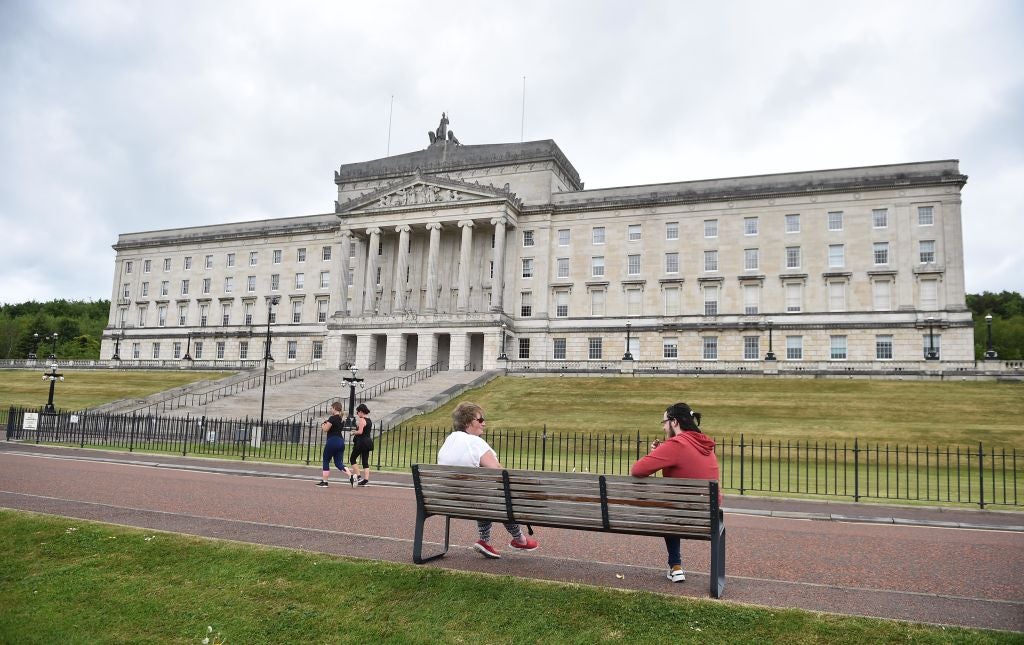Review of Human Rights Act could undermine Northern Ireland peace process, academics warn
Review ‘neither welcome nor timely’, Professor Christopher McCrudden says

Your support helps us to tell the story
From reproductive rights to climate change to Big Tech, The Independent is on the ground when the story is developing. Whether it's investigating the financials of Elon Musk's pro-Trump PAC or producing our latest documentary, 'The A Word', which shines a light on the American women fighting for reproductive rights, we know how important it is to parse out the facts from the messaging.
At such a critical moment in US history, we need reporters on the ground. Your donation allows us to keep sending journalists to speak to both sides of the story.
The Independent is trusted by Americans across the entire political spectrum. And unlike many other quality news outlets, we choose not to lock Americans out of our reporting and analysis with paywalls. We believe quality journalism should be available to everyone, paid for by those who can afford it.
Your support makes all the difference.Academics at Queen's University in Belfast have warned a post-Brexit weakening of human rights laws could threaten Northern Ireland's peace agreement.
The 1998 Good Friday accord brought to end years of bloody violence in NI and underpins the power-sharing executive at Stormont.
The UK government announced a review of the Human Rights Act (HRA) and how it is functioning in December amid long-standing calls from Eurosceptics to significantly redraft or ditch it.
But amending it risks upsetting the delicate constitutional balance achieved in the 1998 Good Friday accord, the experts from Queen's claim.
The concerns of the academics from Queen’s Human Rights Centre are outlined in a submission to the government’s recently commissioned independent review of the Act.
Professor Christopher McCrudden, one of the authors of the Queen’s submission to the review, said: “We consider the current review into the Human Rights Act to be neither welcome nor timely. We see no need to diminish in any way the protections that the Human Rights Act currently offers to the people of Northern Ireland.
“Any move that would be widely viewed as undermining the Belfast/Good Friday Agreement and its strong commitment to the advancement and protection of human rights would be highly regrettable.”
The Queen’s academics said that the UK’s continued ratification of the ECHR is a “significant part” of the Good Friday/Belfast agreement. They highlight the accord contains an important section on the protection of human rights and equality.
“A crucial element of these guarantees is the effective delivery of ECHR rights in Northern Ireland domestic law,” the submission states.
“The HRA is seen in part as the mechanism that delivered on the agreement’s promises in this respect. The HRA, therefore, has a constitutional function in Northern Ireland that is unique in the UK. Tinkering with it risks upsetting a delicate constitutional balance.”
The submission argues the Act plays an important role in policing in NI and in the handling of the legacy of the Troubles.
The Act translates the European Convention on Human Rights (ECHR) into domestic UK law.
Former Court of Appeal judge Sir Peter Gross is leading the independent examination of how the Act is being interpreted in UK courts.
The submission notes the human rights and equality provisions of the Agreement are underpinned by an international treaty between Ireland and the UK, adding: “Any significant modification of the HRA in Northern Ireland that leads to a diminution of rights will attract international attention and concern.”
It said the reaction, particularly from influential US politicians, to the UK’s threat to override elements of the Brexit Withdrawal Deal through provisions of its Internal Market Bill should serve as a “salutary warning of the potential political fall-out, not least in the United States, to any weakening of the HRA”.
The academics warn that NI’s constitutional settlement could be “collateral damage” to a review exercise it claims has “little to do with the realities of human rights practice in Northern Ireland”.
They further highlight that Brexit’s NI Protocol is in part designed to protect rights currently afforded to people in the region.
They said this NI-specific commitment would further complicate the introduction of changes to the Act on a UK-wide basis.
The deal to restore powersharing in NI created a special Assembly committee to consider the long-delayed introduction of a specific Bill of Rights for Northern Ireland.
The academics claim the government-ordered review of the HRA cuts across the ongoing work of the committee.
They warn of the risk of exacerbating political divisions around rights in Northern Ireland.
“Indeed, the debate in Northern Ireland is currently focused on the potential extension of human rights, rather than their diminution,” the submission adds.
Additional reporting by Press Association



Join our commenting forum
Join thought-provoking conversations, follow other Independent readers and see their replies
Comments